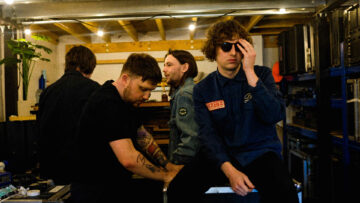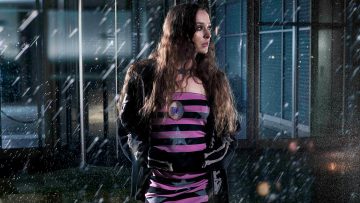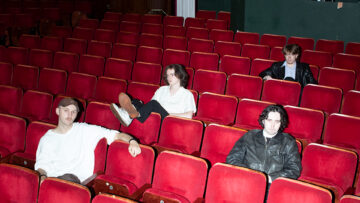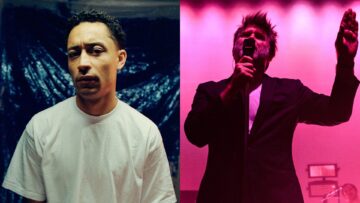
Singer-songwriter Victoria Canal makes music to nourish the soul; deep, tranquil soundscapes that match her poetic words. It’s little wonder that, following one chance April Fool’s joke, she was put in touch with Chris Martin, who has since become something of a mentor for the young artist.
Born in Germany to an American mother and Spanish father, Victoria has lived in various places all over the world, which has widened her sense of herself and how others behave. Such experiences – as well as, of course, having the escapism of music – have helped install a worldly wisdom in her, helping her contend with being born without her right forearm due to amniotic band syndrome. Not that that’s held her back or defined her music to date.
Here, upon the release of her latest EP, Elegy, we speak to Victoria about her latest project, the balance between greater representation and tokenism, and how Chris Martin has helped guide her.
Victoria, where did your musical journey begin? And what was your earliest memory of getting into it?
So my mum’s from the States and my dad’s from Spain, so I grew up moving around a lot. My grandma on my mum’s side was a piano teacher and choir director, so I would go to church with her and sit in on the choir. So some of my first memories singing are being the lead vocalist or soloist in this old folk choir when I was like six, and they were in their 80s. Also, my Cuban grandma loved singing and dancing and traditional Cuban songs. So it was really my grandma’s that showed me music.
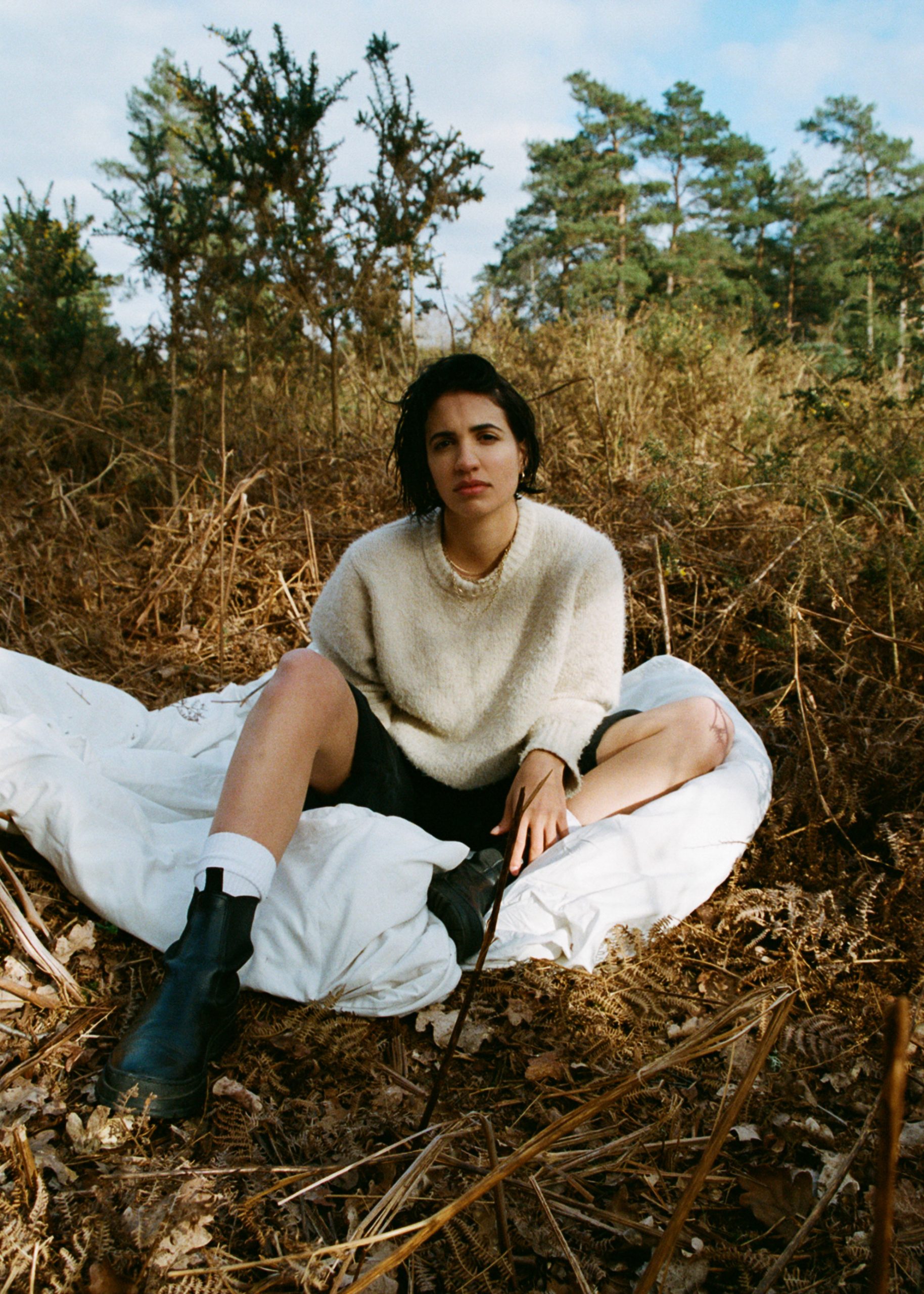
Photo: Karina Barberis
What sort of influence do you think living in lots of different parts of the world has had on your sound and tastes?
I think it’s had more of an effect on me as a person than my music, per se. I think my music has stayed pretty true to whatever I was listening to at the time, which was whatever my older brother was listening to: Radiohead, Rufus Wainwright, Muse, U2, Aerosmith.
But what moving around a lot made me was a diehard extrovert. I love people of all kinds, from all backgrounds. I’m so drawn to people-watching and different cultures and languages. And I like being immersed in circles of people that aren’t like me. I think, as someone who grew up with a physical difference, I was always the odd one out in some way. But then, in a way, there were lots of kids that were odd ones out because I went to really international schools. I think, probably the most harmful environment to be in, without even knowing it, is a homogenous environment of all people who look and think exactly like you.
What has it done, do you think, to your outlook on the world?
There is something that connects all of us, and music is one of those things; it’s the typical universal language, or whatever the cliché is. I think if there’s one thing I see it’s that people really care about family and friends, no matter where you go. I get emotional thinking about it. I think there’s so much hate for things we just don’t understand or don’t know. And, at least for me, it’s been really helpful to try to understand things that I’m not familiar with.
Let’s talk about your debut EP, Into the Pull. You moved from Madrid to Atlanta to complete it. What was the making of that like?
At that point, I changed to online school because the ironic thing about being really extroverted was that I was always, and still am, a very chronically lonely person. And what would happen when I’m in that isolation is music; that’s kind of why the music is so melancholic, because it’s stuff that I’m sitting with that has nothing to do with my friendships and family and relationships – it’s like this deep, inevitable thing.
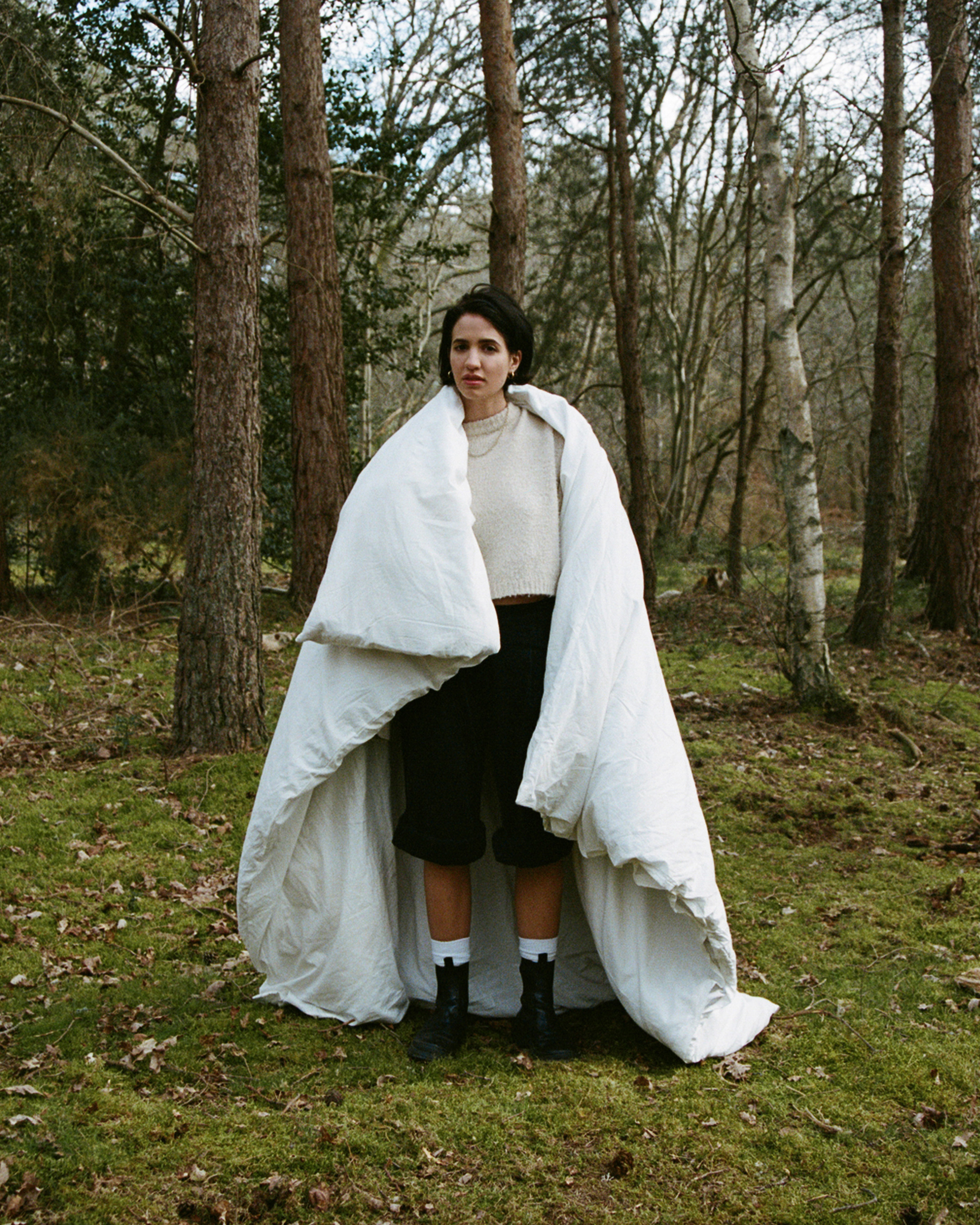
Photo: Karina Barberis
One of my main interests now, especially since COVID, has been becoming my own producer. Not to say I’m not collaborating anymore, because I’m still co-producing. But the foundation of the recordings are me, and that feels much more connected to who I am as an artist, authentically.
What did it feel like being in the studio before you had your capability to produce?
I felt so small. It happens a lot to young artists. Technically, that’s a producer’s role, so the artist isn’t taking on that responsibility. However, one of my main learning points from being in that space and recording projects is that each time I’m getting closer to my voice. Elegy is the first time I’ve done the majority of the recording work, and all of the writing.
But I think – and this is common with women artists – they just defer to the dude in the room who’s the engineer or the producer, without really realising they can do it themselves. I think a lot of women, and a lot of young artists in general, found the empowerment in COVID to take it on themselves. And I was one of those.
Now, when I’m in the room, I’ve made it more known from the get-go that I’m a producer as well. And so we can trade-off more, or there’s not this instant assumption I’m gonna sit on the couch, in the back, on my phone, and the dude’s going to be at the console doing the recording. I’m very much at the desk, adding the stuff, playing on everything. I’m much more involved. And that feels so much more conducive to getting the sound that I want.
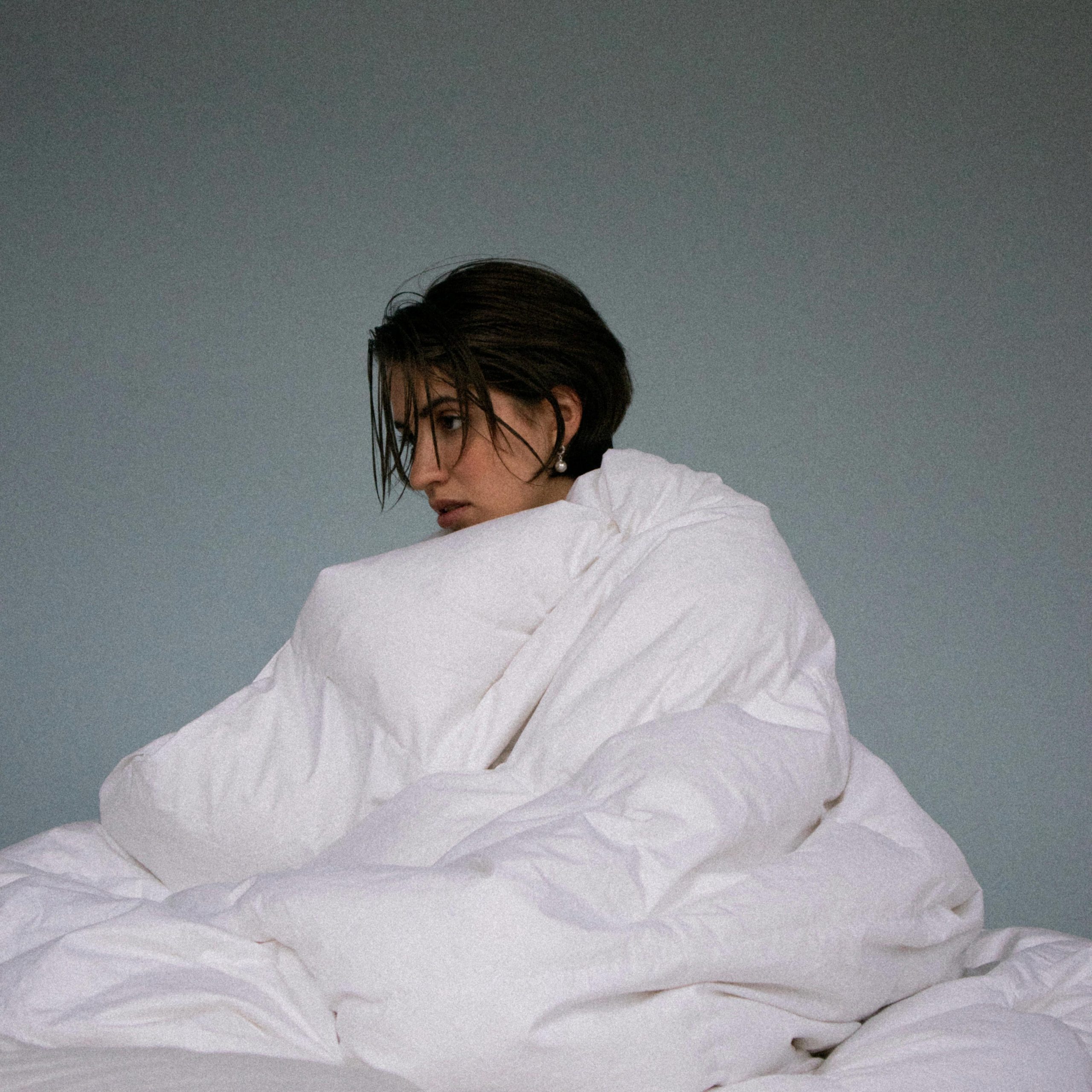
Also, during quarantine, I finally had time to do nothing. I was in a really safe place and would listen to music constantly. I was kind of studying, taking things in. Then I found out that someone I really loved was very ill, and that coincided with all of these novels and TV shows and things I was reading.
And from that, I realised I can talk about whatever I want in my songs. I think I felt so confined prior to that; but at that point, I didn’t even know if the world was ending. I didn’t know if anybody was ever gonna hear my music again. So I just started writing what I wanted to write; about grief and about brothers and about family, women, queerness, body image and all of these things. I cracked something open as a songwriter, and that felt really interesting to me.
What have you made of the successes you’ve had so far and the number of streams you’ve had on some of your songs, for instance?
It depends on the day. Sometimes I’m like, ‘Oh, my God, that’s so many people’, and other times I wish I was doing better. There’re always artists that I compare myself to – the cooler sad indie girl, or whatever. But I try not to get so industry-minded in the sense of needing more streams. I think one of the things about the music I’ve been putting out is that, maybe it’s not reaching hundreds of millions of people, but the people it is reaching are reaching back to me and saying, ‘Thank you’, or, ‘This hit me deeply’, or ‘I talked to my brother after 15 years’, or whatever it might be. Things like that, I think in the end, are what it’s all about.
Are you ambitious as an artist, would you say?
I’ve met ambitious and it’s like, ‘I must be Ed Sheeran; by this time, I must be playing stadiums or arenas.’ I’m not that. I might have been when I was about nine years old. But as I’ve gotten older, I realised that’s not what fills you up in life. However, there are certain things that really fill me up. For example, playing with my favourite artists and getting to work with my producers that I’ve been looking up to for a long time.
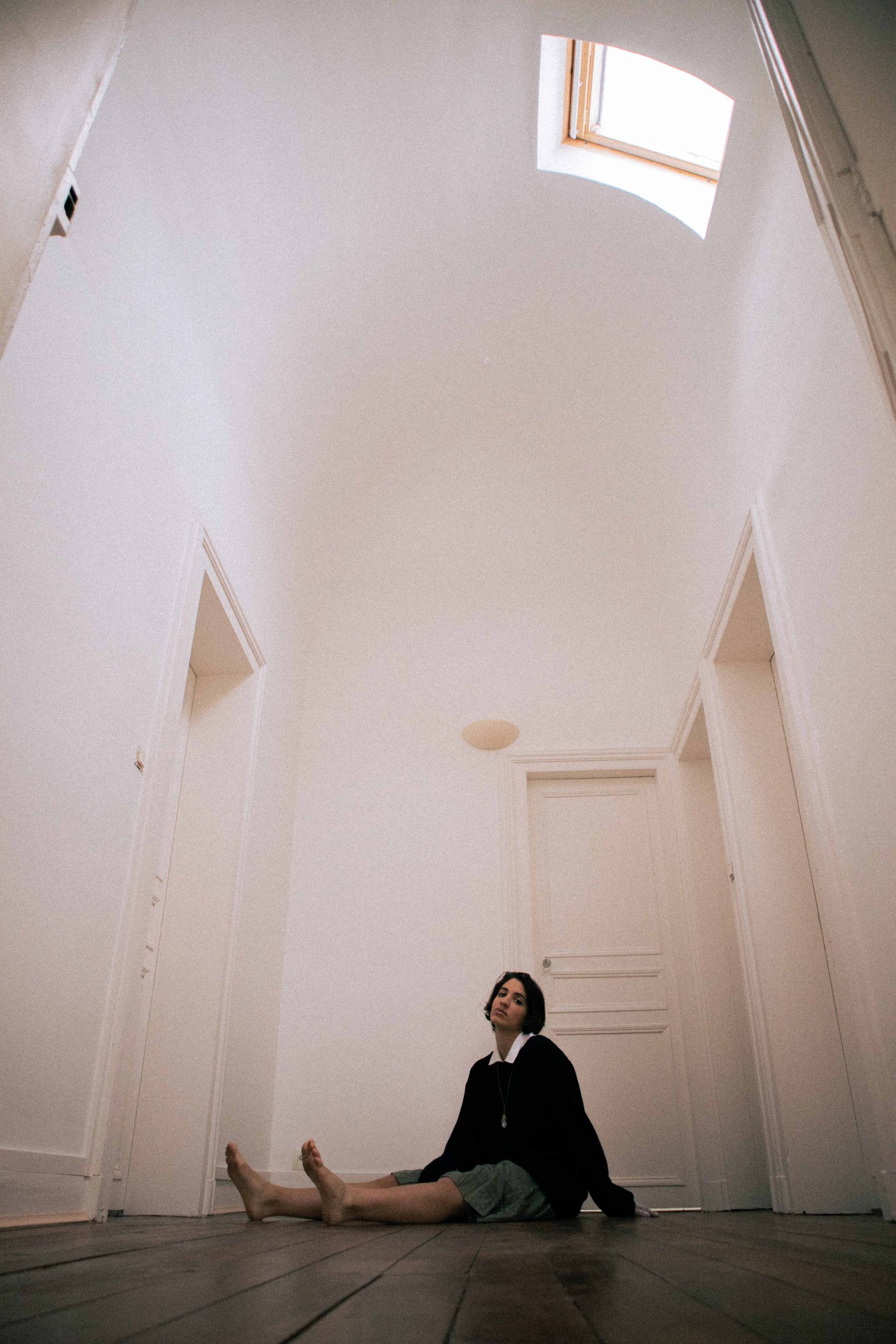
Photo: Nicholas Canal
Certain things like that are what success is to me; having access to this community of people I’ve always looked up to. It’s kind of like the equivalent of being the really unpopular kid, which I was in school, and never really being invited to the ‘popular kid’s table’. To a certain extent, there’s a certain satisfaction – not a profound fulfilment – but an indulgent satisfaction in being invited to it.
It’s a bit of a ‘fuck you’ to the people who previously rejected you, then?
Yeah, people who picked on me and called me disgusting. The amount of times that I was called disgusting because of my difference as a kid… But that’s not my driving influence anymore. My driving influence now is I’m obsessed with music. And I just want to be around it all the time. And I want to be around people who are better than me, so I get better.
Speaking of that, you recently had a fairly significant encounter with Chris Martin. What was that and how did it come about?
Basically, about a year ago, I posted this April Fool’s thing of a fake Rolling Stone cover which said I wowed Chris Martin. Someone on the Amazon Music team that works for Coldplay had been following me, saw it and sent one of my videos to Chris [Martin]. Chris sent a text back right away and was like, ‘Holy shit, she’s amazing. Can you get me in touch with her?’ And then that guy put him in touch with my manager. My manager called me, and we were nervous as hell.
Chris Martin is like the guy you know; he’s the songwriter of all songwriters, forever in my life. When I was 14 gigging at restaurants, my main CV description was: ‘can play any Coldplay song.’ So it was kind of a mindfuck. I thought it was a spam email. And then, lo and behold, Chris facetimed my manager, and was like, ‘I really love your client’s music do you mind if we connect?’ I waited a week for his call. I couldn’t sleep for four days, to the point where I voice messaged and said, with my voice a little shaky, ‘Hi, Chris, I haven’t been able to sleep in four days in anticipation of our call.’ We ended up FaceTiming and I felt like I fucked it up, completely, because I was so awkward and nervous.
View this post on Instagram
And what was he like?
He’s so nice and inquisitive and helpful. He just asked, ‘Where do you want to go? What do you want to do? How can I help?’ I was nervously asking these questions and admitted I was really nervous. He was like, ‘That’s okay, I get nervous talking to Bruce Springsteen.’
He asked me about my arm, too. He said, ‘How does that feel to be interviewed about all the time?’ And, honestly, sometimes it sucks – to be so excited about something, and then the headline comes out, and it doesn’t even say my name. It says ‘One-handed’, whatever. That can be really frustrating.
I was saying sometimes I’m worried I only am where I am because of my difference – that people tokenise and are fascinated by it, but would anybody even care if I just looked like an able-bodied person? And he said, ‘You could look like a fucking marshmallow and you’d still be really good at music.’ And that was all I needed.
A week later, I got invited to record with them in Barcelona, with all these people and was learning from Chris himself. He invited a few artists out and was like, ‘Here’s some space, do your thing and at the end of the day, we’ll all come together and listen to music together.’ The first day I met him in person, I couldn’t do anything. Then he ran off and came back and said, ‘Victoria, come play ‘Swan Song’ for everyone.’ I played it and he knew every word, which was shocking to me. And ever since then, he’s just been like, ‘Hey, send me songs, what are you up to?’ He’s just been a really amazing mentor, very welcoming, very helpful.
View this post on Instagram
As you mentioned, he brought up the discussion of your arm in a sensitive way. Could you just say a bit more about how you feel people perceive the relation between your music and your disability?
Yeah, I’m not ashamed by any means. However, I have no say in how much it overpowers the music, in what people want to talk about. When I listen to other artist’s interviews, they’re asking about the recording process and the songwriting. And, for me, it’s always like, ‘What’s it like being a disabled person?’ It’s always centred around that. It’s interesting to have people decide what you are, rather than having a say.
I don’t closely identify with my disability, it’s a part of my body, but what does that have to do with my music? It’s almost like a mindfuck. It’s like being gay and being an artist. What matters other than maybe the pronouns you use in a song towards someone? What does your sexual orientation have to do with your artistic craft? It might influence it in some way but what’s important is the artistry.
And I just feel like it’s random to connect the two things; to connect the fact that I have one hand with the fact that I make music. But I also think about the fact that when artists break through to the general public, they’re always defined by one thing by the press. Whether it’s getting criticised for being gay; or Lizzo for being a proud, body positive woman; Harry Styles for dressing more androgynous.
And then eventually people get used to that and the artist can just be the artist and people will think what they think. All I can really do is just continue doing what I’m doing, which is making music, and whatever the headlines are, I’m not gonna sit around and mope about it. I’ve talked to TikTok stars who are frustrated that every time they’re interviewed, it reads, ‘TikTok Star…’ I think it happens to everybody, so I’m not gonna pity myself because I don’t think I’m the only one.
You use the word ‘tokenistic’. What do you make of people striving toward better representation and promoting artists with disabilities, but equally not doing it in a way that’s forced?
It’s super complex, especially with, say, queerness. Because obviously queer artists haven’t been represented enough. And so, you’ll see playlists on Spotify that are like, ‘Music made by queer people.’ And the same thing goes for disability, but I just wish we lived in a world where none of it mattered, like a neo-futuristic world where whatever body you are, you’re not clumped in with these people and these people, but also you don’t have a disadvantage because you look a certain way. And the fact is, we live in a world right now where you are still disadvantaged for looking a certain way.
What impact has your disability had on you? Did you ever think, ‘why is everyone treating me in a certain way’?
Well, that’s it. It affected me most in the way that people saw me and treated me, rather than the way that I feel, capability-wise. I just had no control over it. You just feel a little less desired, a little less pretty, less popular, and you have no control over what your body looks like. You have this body and then because of whatever body you showed up in, the world decides how to treat you, and I think that’s the tragedy of it.
However, I’ve met enough people with disabilities now, thankfully, that have taught me that it’s really your choice to show up in the world how you will, and that has a huge influence on how people will treat you. If I sit here resentful and bitter, then that energy is going to come back at me too. Whereas if I believe in the goodness of people, which I do, eventually my arm thing won’t matter.
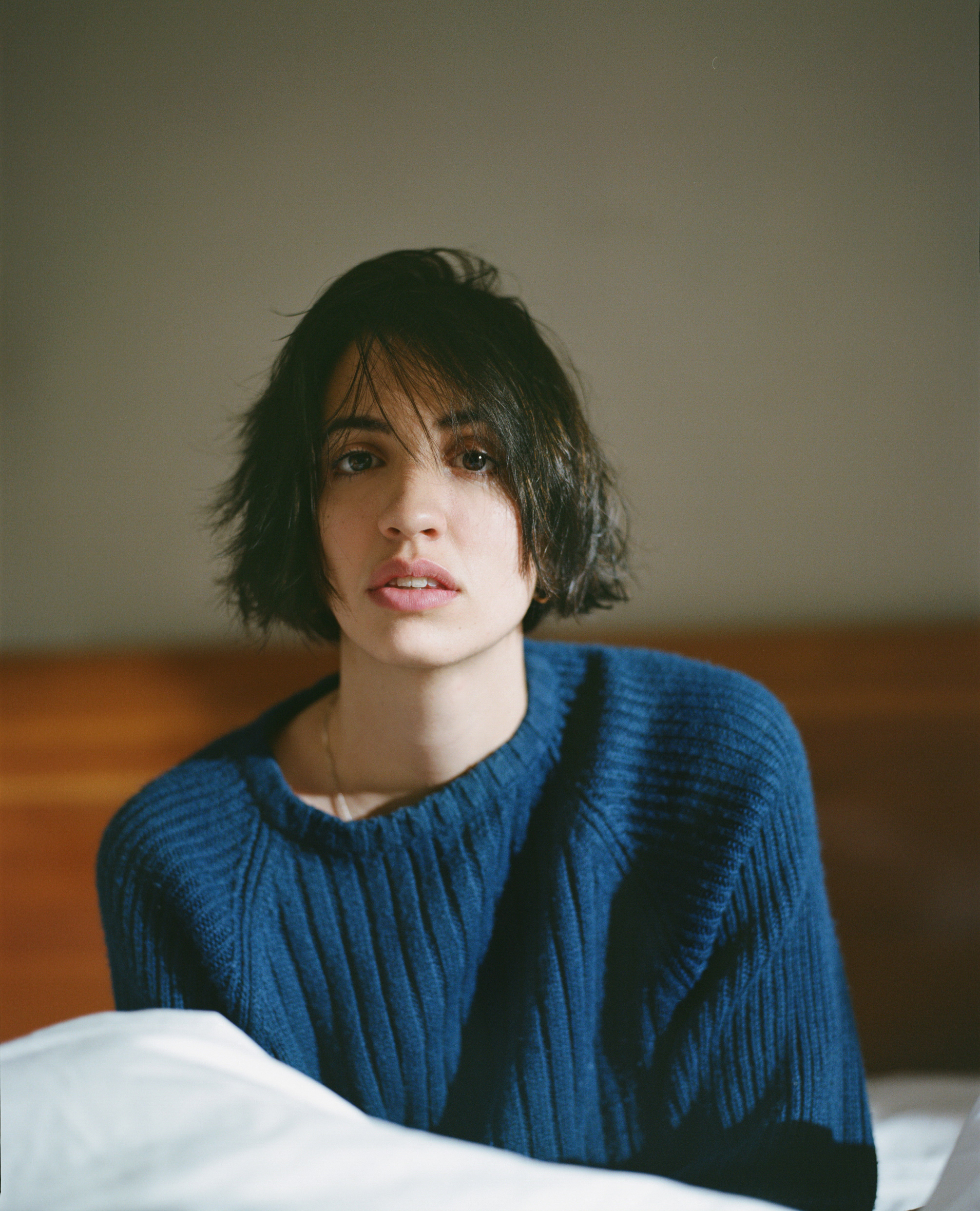
Photo: Karina Barberis
Let’s talk about some goodness, then – your music. Elegy, your new EP – why that title?
An elegy is of course an homage to someone who’s passed. The entire project is about this loved one I was mentioning, anticipating that loss. It was all about that interim period: knowing you’re going to lose someone, but not having lost them yet, and anticipating filling their shoes, saying goodbye, and not understanding why bad things happen to good people.
So the four songs are in a kind of sequential order of: finding out your ill and questioning everything, having to tell your kid and the response and confusion that evokes, and then the last song, ‘driving your car’, is about filling their shoes after they’re gone – basically trying to preserve them and their legacy.
And you’re going on tour? What’s live performing been like for you so far?
Up until this point, the majority of my touring has been opening for other artists. This is going to be my first headline tour. So we’ll see how it goes. I have no reference point, other than maybe one or two headline shows where I feel quite nervous because everyone’s there for me. It’s so weird because I’m so used to opening and having to win everyone over. So I’m just so curious.
And I’m going to be playing with my friends onstage and that means a lot to me; just to travel around with my friends. I think it’s getting closer and closer to the dream life that I imagined at 15; of just rolling around with my buddies, playing songs onstage, and it feels really special to do that.

